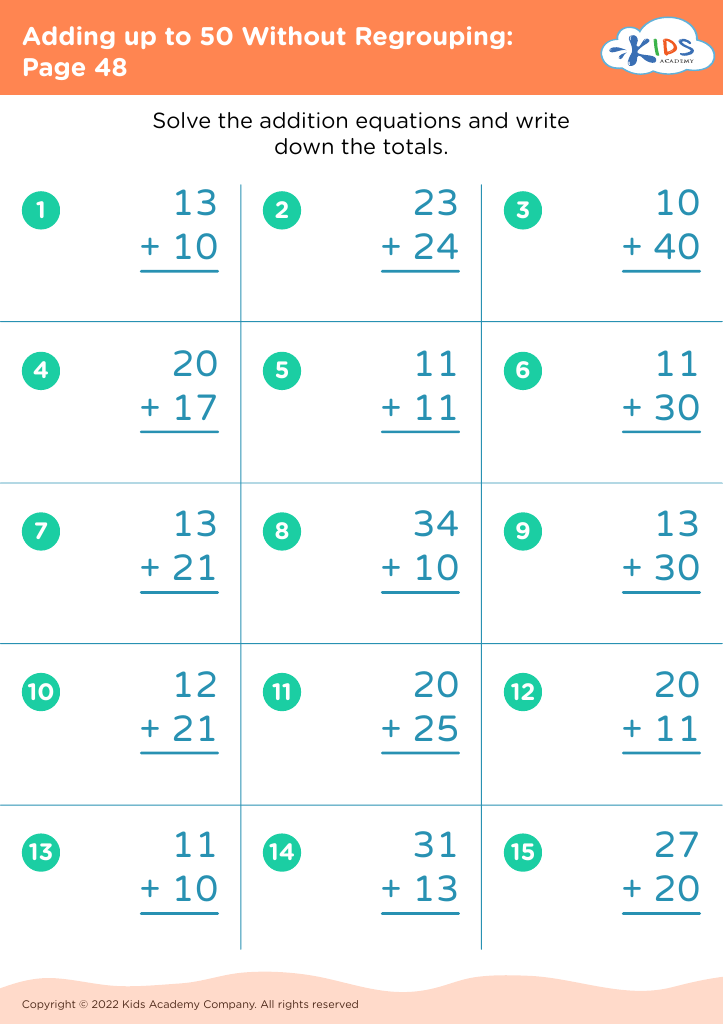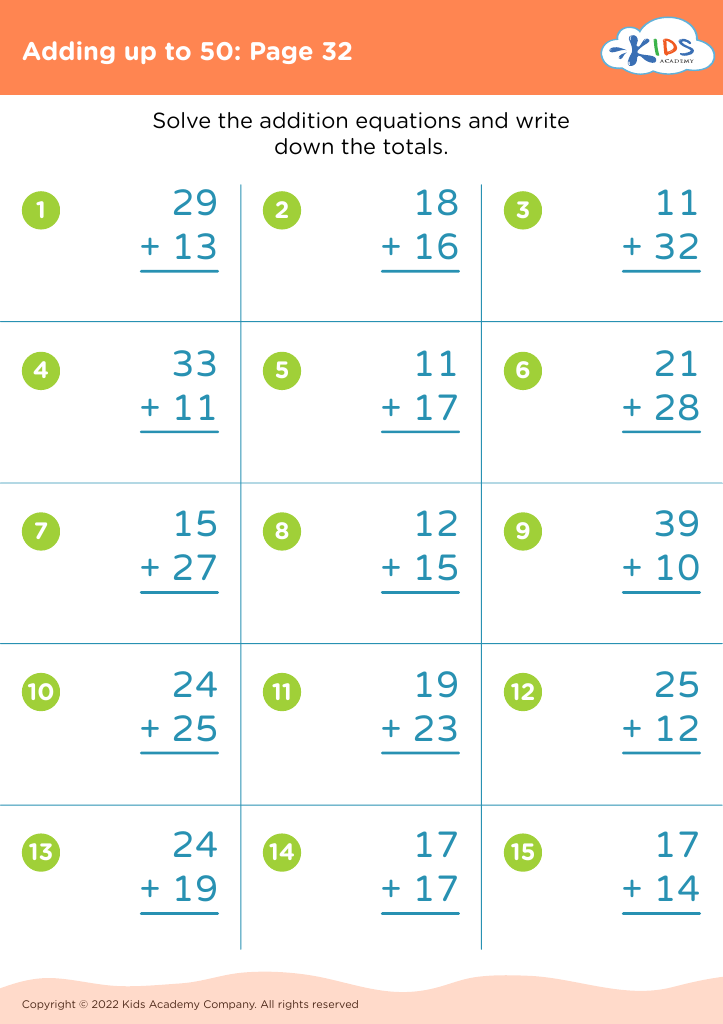Comparing quantities Adding up to 50 Worksheets for Ages 8-9
3 filtered results
-
From - To
Enhance your child's math skills with our "Comparing Quantities Adding Up to 50 Worksheets" designed for ages 8-9. These engaging worksheets help students develop a strong foundation in comparing quantities through fun exercises that involve addition and subtraction within 50. Ideal for reinforcing classroom learning, these activities not only promote critical thinking but also improve number sense. Each worksheet is crafted to challenge young minds while keeping them entertained. Perfect for homework, extra practice, or homeschooling, these resources will motivate your child to excel in math. Download today and watch their confidence soar as they master comparing quantities!
Understanding how to compare quantities and perform addition up to 50 is crucial for children aged 8-9 as it lays the foundation for more complex mathematical concepts. At this age, students are still cementing their number sense, making it essential for parents and teachers to engage with this skill.
First, competence in comparing quantities fosters critical thinking. When children learn to assess which numbers are greater or smaller, they're also developing analytical skills that transcend math. This ability encourages logical reasoning and decision-making, both vital in everyday situations.
Second, mastering addition up to 50 enhances their fluency in mathematics, facilitating confidence in tackling larger numbers and equations in the future. Proficiency in this area directly impacts their performance in mathematics, affecting their perception of the subject as enjoyable or challenging.
Additionally, these foundational skills are interconnected with real-life applications, such as budgeting allowances, measuring ingredients in cooking, or even comprehending distances. When parents and teachers emphasize comparing quantities and addition, they not only aid cognitive development but also prepare children for future academic and life success. Ultimately, investing in these basic skills provides children with vital tools to navigate an increasingly complex world.




















